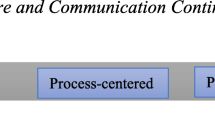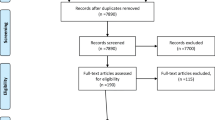Abstract
OBJECTIVE: To examine associations of patient ratings of communication by health care providers with patient language (English vs Spanish) and ethnicity (Latino vs white).
METHODS: A random sample of patients receiving medical care from a physician group association concentrated on the West Coast was studied. A total of 7,093 English and Spanish language questionnaires were returned for an overall response rate of 59%. Five questions asking patients to rate communication by their health care providers were examined in this study. All five questions were administered with a 7-point response scale.
MAIN RESULTS: We estimated the associations of satisfaction ratings with language (English vs Spanish) and ethnicity (white vs Latino) using ordinal logistic models, controlling for age and gender. Latinos responding in Spanish (Latino/Spanish) were significantly more dissatisfied compared with Latinos responding in English (Latino/English) and non-Latino whites responding in English (white) when asked about: (1) the medical staff listened to what they say (29% vs 17% vs 13% rated this “very poor,” “poor,” or “fair”; p<.01); (2) answers to their questions (27% vs 16% vs 12%; p<.01); (3) explanations about prescribed medications (22% vs 19% vs 14%; p<.01); (4) explanations about medical procedures and test results (36% vs 21% vs 17%; p<.01); and (5) reassurance and support from their doctors and the office staff (37% vs 23% vs 18%; p<.01).
CONCLUSION: This study documents that Latino/Spanish respondents are significantly more dissatisfied with provider communication than Latino/English and white respondents. These results suggest Spanish-speaking Latinos may be at increased risk of lower quality of care and poor health outcomes. Efforts to improve the quality of communication with Spanish-speaking Latino patients in outpatient health care settings are needed.
Similar content being viewed by others
References
Andersen R, Lewis SZ, Giachello AL, Aday LA, Chiu G. Access to medical care among the Hispanic population of the southwestern United States. J Health Soc Behav. 1981;22(1):78–89.
Ginzberg E. Access to health care for Hispanics. JAMA. 1991;265(2):238–41.
Schur CL, White LA, Berk ML. Health care use by Hispanic adults: the role of financial vs non-financial determinants. AHSR FHSR Annu Meet Abstr Book. 1995;12:103. Abstract.
Schur CL, Albers LA. Language, sociodemographics, and health care use of Hispanic adults. J Health Care Poor Underserv. 1996;7(2):140–58.
Valdez RB, Giachello A, Rodriguez-Trias H, Gomez P, de la Rocha C. Improving access to health care in Latino communities. Public Health Rep. 1993;108(5):534–9.
Molina CW, Zambrana RE, Aguirre-Molina M. The influence of culture, class, and environment on health care. In: Molina CW, Aguirre-Molina M, eds. Latino Health in the U.S.: A Growing Challenge. Washington, DC: American Public Health Association; 1997:23–43.
Woolley FR, Kane RL, Hughes CC, Wright DD. The effects of doctor-patient communication on satisfaction and outcome of care. Soc Sci Med. 1978;12(2A):123–8.
California Cultural Competency Task Force. Recommendations for the Medi-Cal Managed Care Program. Sacramento, Calif: California Department of Health Services; 1994.
Lavizzo-Mourey R, Mackenzie ER. Cultural competence: essential measurements of quality for managed care organizations. Ann Intern Med. 1996;124(10):919–21.
Hall JA, Dornan MC. Patient sociodemographic characteristics as predictors of satisfaction with medical care: a meta analysis. Soc Sci Med. 1990;30(7):811–8.
Harpole LH, Orav EJ, Hickey M, Posther KE, Brennan TA. Patient satisfaction in the ambulatory setting: influence of data collection methods and sociodemographic factors. J Gen Intern Med. 1996;11(7):431–4.
Baker DW, Parker RM, Williams MV, Coates WC, Pitkin K. Use and effectiveness of interpreters in an emergency department. JAMA. 1996;275(10):783–8.
Hu DJ, Covell RM. Health care usage by Hispanic outpatients as a function of primary language. West J Med. 1986;144(4):490–3.
DiMatteo MR, Hays R. The significance of patients’ perceptions of physician conduct: a study of patient satisfaction in a family practice center. J Commun Health. 1980;6(1):18–34.
Linn LS, Greenfield S. Patient suffering and patient satisfaction among the chronically ill. Med Care. 1982;20(4):425–31.
Cleary PD, McNeil BJ. Patient satisfaction as an indicator of quality care. Inquiry. 1988;25(1):25–36.
Aharony L, Strasser S. Patient satisfaction: what we know about and what we still need to explore. Med Care Rev. 1993;50(1):49–79.
Hays RD, Brown JA, Spritzer KL, Dixon WJ, Brook RH. Member ratings of health care provided by 48 physician groups. Arch Intern Med. 1998;158(7):785–90.
Hays RD, Sherbourne CD, Mazel RM. The RAND 36-Item Health Survey 1.0. Health Econ. 1993;2(3):217–27.
Angel R, Guarnaccia PJ. Mind, body, and culture: somatization among Hispanics. Soc Sci Med. 1989;28(12):1229–38.
Hayes RP, Baker DW. Methodological problems in comparing English-speaking and Spanish-speaking patients’ satisfaction with interpersonal aspects of care. Med Care. 1998;36(2):230–6.
Shetterly SM, Baxter J, Mason LD, Hamman RF. Self-rated health among Hispanic vs non-Hispanic white adults: the San Luis Valley Health and Aging Study. Am J Public Health. 1996;86(12):1798–801.
DuMouchel WH, Duncan GJ. Using sample survey weights in multiple regression analysis of stratified samples. JASA. 1983;78(383):535–43.
Sisk JE, Gorman SA, Reisinger AL, Glied SA, DuMouchel WH, Hynes MM. Evaluation of Medicaid managed care: satisfaction, access, and use. JAMA. 1996;276(1):50–5.
Todd KH, Samaroo N, Hoffman JR. Ethnicity as a risk factor for inadequate emergency department analgesia. JAMA. 1993;269(12):1537–9.
Perez-Stable EJ, Naapoles-Springer A, Miramontes JM. The effects of ethnicity and language on medical outcomes of patients with hypertension or diabetes. Med Care. 1997;35(12):1212–9.
Manson A. Language concordance as a determinant of patient compliance and emergency room use in patients with asthma. Med Care. 1988;26:1119–28.
Rosen K, Sanford S, Scott J. Emergency department care of the Spanish-speaking patient. Ann Emerg Med. 1991;20(466).
Hornberger JC, Gibson CD Jr, Wood W, et al. Eliminating language barriers for non-English-speaking patients. Med Care. 1996;34(8):845–56.
Woloshin S, Bickell NA, Schwartz LM, Gany F, Welch HG. Language barriers in medicine in the United States. JAMA. 1995;273(9):724–8.
Author information
Authors and Affiliations
Additional information
Support for this research was received from the Health Resources and Services Administration, through a fraining grant (PE19001-09) to the first author and an unrestricted research grant from The Medical Quality Commission to RAND (R.D. Hays, principal investigator). The views expressed herein are those of the authors and do not necessarily reflect the views of The Medical Quality Commission, RAND, or The University of California Los Angeles.
Rights and permissions
About this article
Cite this article
Morales, L.S., Cunningham, W.E., Brown, J.A. et al. Are latinos less satisfied with communication by health care providers?. J GEN INTERN MED 14, 409–417 (1999). https://doi.org/10.1046/j.1525-1497.1999.06198.x
Issue Date:
DOI: https://doi.org/10.1046/j.1525-1497.1999.06198.x




